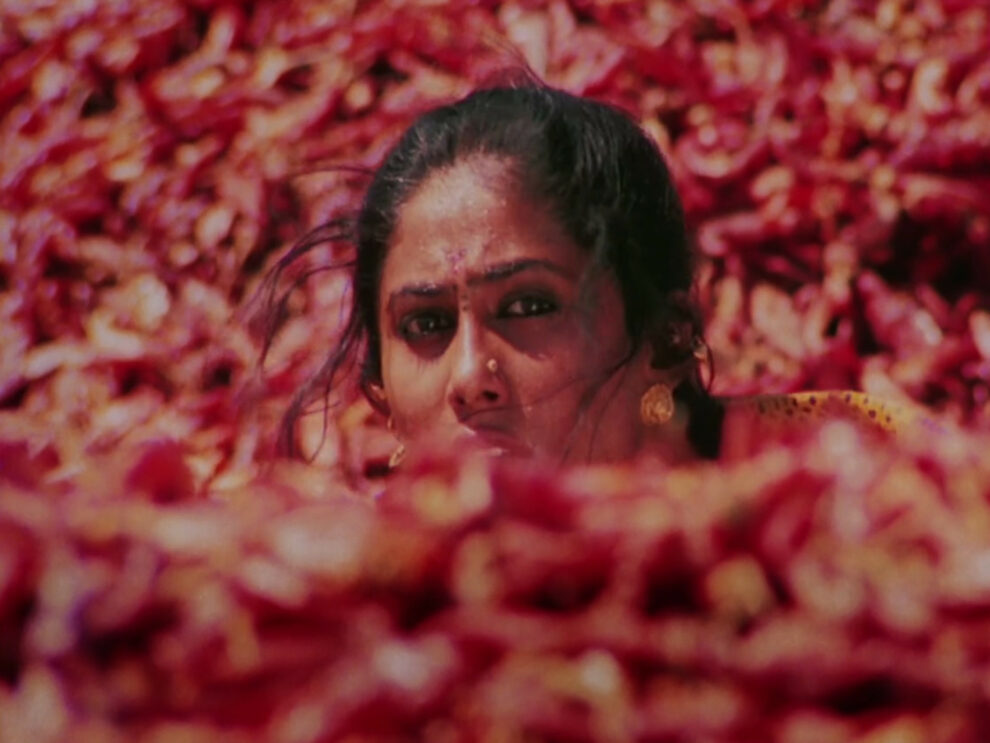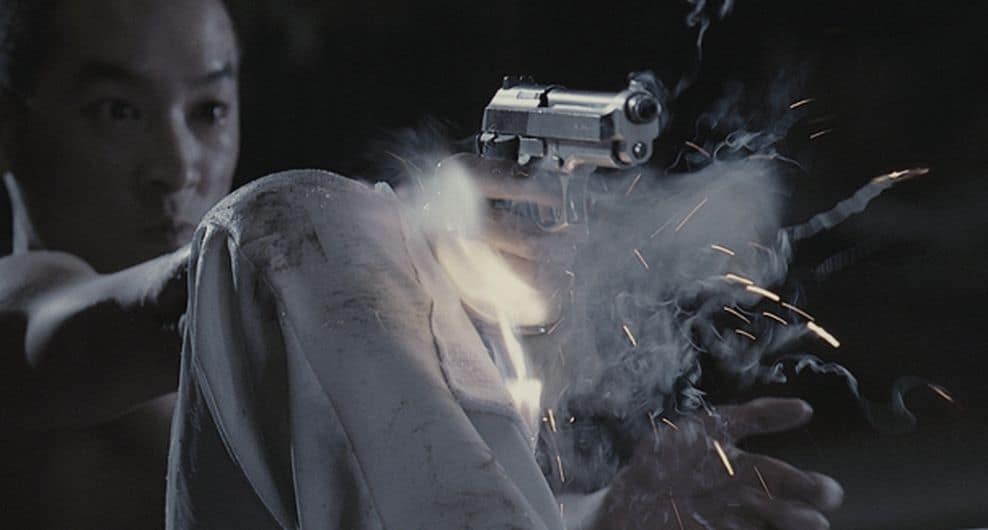Produced by NFDC, “Mirch Masala” (meaning “Hot Spice”) is a 1987 Hindi film directed by Ketan Mehta. Set in rural pre-independence India, it's loosely inspired by a four-page Chunilal Madia story, called “Abhu Makrani”, and other stories of rebellious women in colonial times that the director heard of on his travels in Gujarat.
Set in the Rann of Kutch in the 1940s, where drought threatens a parched riverside village, Sonbai (Smita Patil), a strong-willed woman, works with other women in a factory that produces chili powder. Subedar (Naseeruddin Shah) is a new employee in the hamlet who occasionally engages in looting. One day, he makes an inappropriate sexual offer to Sonbai, to which she responds with a slap on his face.
Sonbai's rejection wounds not only Subedar's passion, but his sense of masculinity, and the only way to mend it is to ruin Sonbai's name. He tries to buy her, just like property. Due to this, the women of the factory seek refuge in the said factory, where “chowkidar” (gatekeeper) Abu Miya (Om Puri) provides protection. Not to mention that, as caste adds up to the patriarchal fundaments of Indian society, Sonbai's female honor and reputation heavily influence those of the village. But that doesn't stop her from fighting for what she believes in. When a guard from a chili factory assists her, the village's teacher and the other women join them in openly opposing the oppression that is currently in place.
Check also this interview
“Mirch Masala” is the story of a woman who decides to fight against her powerful oppressor. It's all about the fundamental ability of unity to fend off and overcome oppression, a timeless ethos in any community. The impact of that power slowly increases, culminating in the final act's desperate search for freedom. The film is surely a moving experience that portrays female hardships, perseverance, and optimism vividly.
The ladies in the movie are given identity, while the men are given status. Another interesting aspect is the way the factory's women discuss sex. Their discourse differentiates greatly from the male perspective, giving space to a real feminist discussion. Men think of sex as something related to honor, the greatest pride. The women, instead, consider it as a casual and regular aspect of life. Moreover, the story perfectly combines the feminist discourse with another political one: the importance of caste in Indian society. The topic is smartly depicted: it is evident, although not openly. We can see it from the vocabulary, as with words like “kamjaat (low caste)” and “dayaan (witch)”, both used to disparage Sonbai.
The color red is vivid and central to the narration, as it adds tension and announces breathtaking plot twists. The editing and music are equally brilliant. In fact, there's a climatic scene, towards the end, that particularly stands out. A group of men watch helplessly as the harrumphing Subedar storms the chili factory. He then approaches Sonbai, whom he has long lusted after, and she raises a sickle in her hand as she directs a stern gaze at him. The factory's ladies suddenly and unanimously rush the predator, blinding him with searing red chili powder. Sonbai stands shrouded in scarlet fumes, the unintentional instigator of a long overdue rebellion. She has now become the victorious symbol of liberated, downtrodden women.
“Mirch Masala” surprisingly handles its topics and representation with lucidity and sincerity, depicting all the varied female experiences from various social backgrounds. In fact, in all realism, the movie, unlike other Bollywood feminist movies, it shows women's hardships without ever portraying them as helpless creatures. Instead, they're strong individuals who know what they want and how to get it. They're portrayed as real people with desires, conflicts, and pleasures. Even when they experience hardships, the movie does not fall in the trap of becoming abundantly pessimistic regarding their depiction.
Ketan Mehta's tale does not spare any time in exposing the active, hypocritical, and even passive perpetrators of a pervasive patriarchal regime. It succeeds in embodying a powerful message through incredible storytelling and an attentive and varied portrayal of society. “Mirch Masala” is a must-watch story of heated retribution, spun in earthy, rustic colors, rooted in folklore, and hammered with melodrama.














